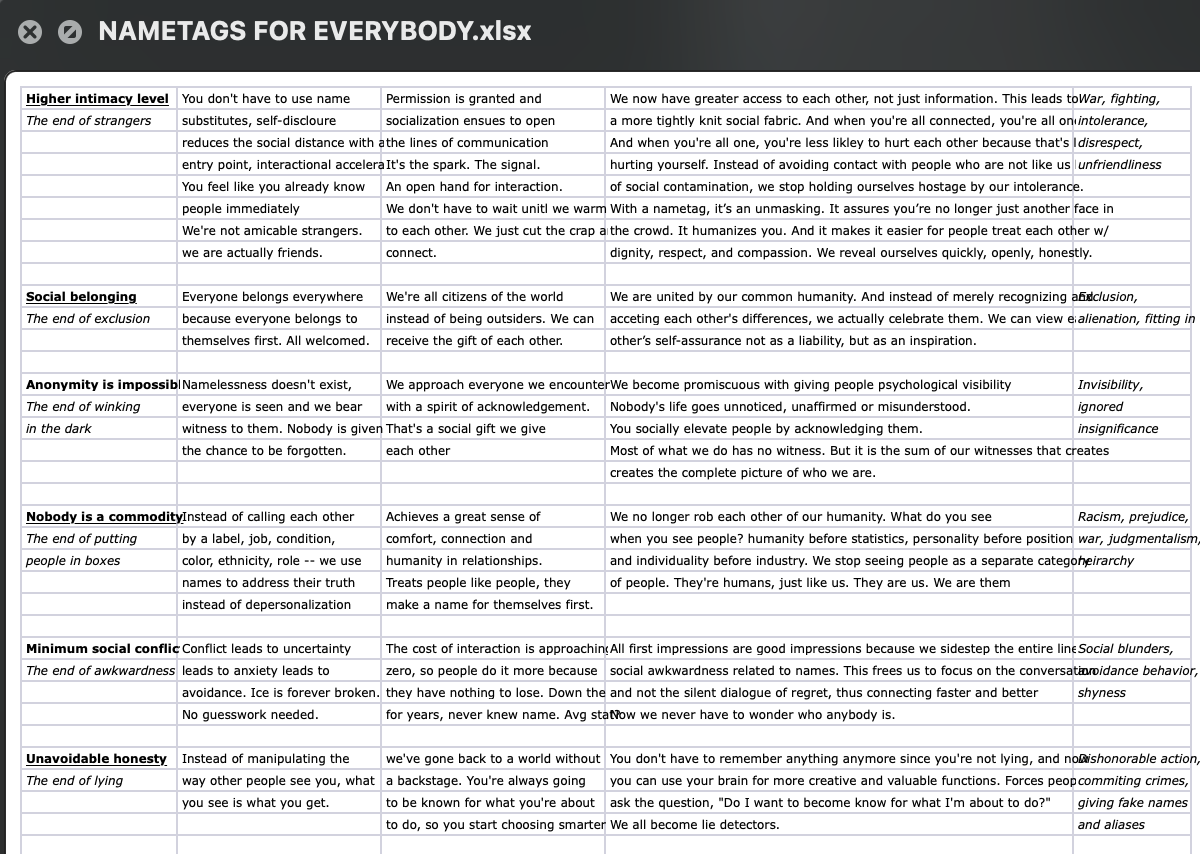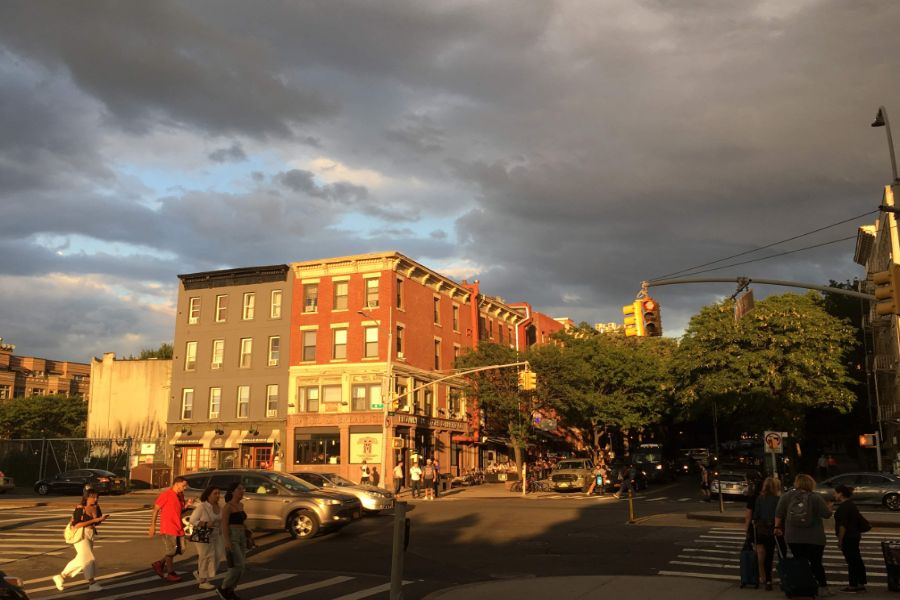October 11, 2022
Are you afraid of your imagination?

Years ago I tuned into an interview on public radio with an award winning novelist.
She said something powerful that has stuck with me to this day:
Modern writers are afraid of their imaginations.
That resonated with me on a cellular level, as I was feeling creatively blocked at the time. There seemed to be nothing inspiring me to write each day.
Maybe this is the problem. Maybe I need to revisit my original nametag idea and try thinking about it from a completely different angle. After all, people are always asking me if my goal is to get the whole world to wear nametags, and my answer is always no.
But what if it wasn’t? What if everyone in the world really did have to wear nametags? How would daily life be different on this plane if we changed just one rule in the universe?
My car couldn’t have turned around faster.
I sped back home, bounded into my office and did something completely uncharacteristic of my personality at the time.
I started a spreadsheet.
At the time, spreadsheets are not my default canvas for ordering my thoughts. More of a blank document kind of guy.
But that was the whole point. My brain’s patterns needed to be disrupted in order to unlock new energy. My ideas needed a new format to be fleshed out properly.
In this scenario, a spreadsheet was the ideal way to take years of research and compartmentalize the many societal implications of everybody wearing nametags everyday, ascending in order of magnitude.
What’s the interpersonal upside? What problems do nametags solve for people? What new value would that make available to society as a result? What are the broader, downstream economic and cultural implications of wearing nametags?
Here’s a screen shot and excerpt from the sheet:

If everybody wears nametags, cultural understanding spreads. Because as humans, we tend to avoid what we don’t understand. But knowing the name of someone, especially from another ethnicity, race or culture, not only brings us closer to them, but also makes us more understanding of who they are as a person. It’s an unmasking. And because diversity is respecting people’s right to be, while honoring that same right in ourselves, nametags bridge connections across different cultures. Now it’s harder to treat people with disrespect. No more hatred, no more judgments and no more bigotry.
That spreadsheet slowly filled up over the course of the next few days. You couldn’t have pried me away from my desk with a crowbar.
I could tell right away that this new project, whatever the heck it was, was a newfound source of energy. One that could be leveraged to get me out of my funk.
Over the next month, that spreadsheet turned into what would become my official nametag manifesto.
Every artist should have a manifesto, right? Unabomber, eat your heart out.
Once the content was properly illustrated and edited, I published it on a content sharing community. And it was quickly awarded as the presentation of the day. The manifesto went some version of viral, receiving eighty thousand views in the first week.
I even got an email from a college professor who started using the manifesto as part of the curriculum of his ethics class. Pretty cool.
If you’re struggling to find a new project to look forward to, maybe you need a new productive obsession.
Something in which you can overcome the fear of your own imagination.
How could you create an existence with more resistance?

